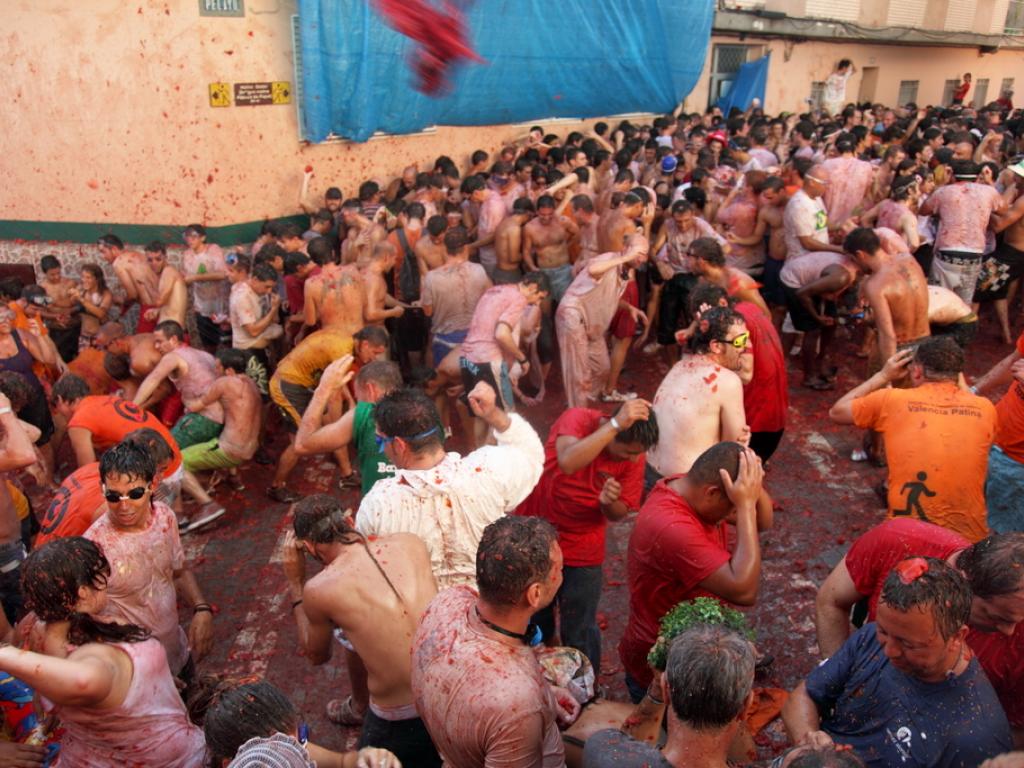Meaningful Discussions at the TSP Table


The key to a great dinner party is having both the right mix of people and the right seating arrangement at the table. If you pull this off and add in an engaged host, you will enjoy a stimulating evening of insightful conversation on current events, hear captivating personal stories, and leave with a new sense of a shared experience and new or stronger relationships. If you get something wrong you may end up with someone shouting and throwing a perfectly delicious bowl of soup across the room.
As it turns out, this attention to detail for hosting, guest lists, and seating charts are also key for planning a multi-stakeholder engagement process on agriculture, food security, and climate change adaptation. My role as regional research lead for the West Africa team of the Adaptation at Scale in Semi-Arid Regions (ASSAR) project has given me a behind-the-scenes look at two such Transformative Scenario Planning (TSP) processes carried out with our teams in Mali and Ghana. These processes are a crucial part of our West Africa RiU strategy. Our colleagues from Reos Partners (who have developed the TSP methodology), with assistance from the Red Cross Red Crescent Climate Centre, facilitated our two Ghana workshops with support from the team from the Institute for Environment and Sanitation Studies at the University of Ghana. In Mali, a parallel process was facilitated by our partners from the International Crops Research Institute for the Semi-Arid Tropics (ICRISAT). I was part of the development process for both TSPs, but as I was able to attend and participate in the Ghana workshops I have more direct insights to offer from those.
The objectives for the TSP in Ghana were to try and engage just the right mix of partners from different backgrounds so that they might (a) come closer to a shared understanding of the challenges relating to agriculture and food security in the Upper West region in the context of a changing climate; (b) work together to imagine and create stories of what the future may look like up to 2035; and (c) do these things in ways that transform our understandings, language, relationships, and intentions as individuals and as a group to work toward greater opportunities for adaptation.
Through carefully facilitated group dialogue and activities in the first workshop, the participants uncovered two priority driving forces that they felt would influence the future of agriculture and food security in the region: access to water (poor vs good access) and level of political commitment to issues of adaptation (low vs high). These were placed as axes which would guide story development for the four future scenarios that were then developed between the first and second workshops, and these stories were given titles in the local language: ‘Azaabawei’ (all is not lost), ‘Nouyong’ (all joy), ‘Bekpeebe’ (orphans) and ‘Zeliebe’ (seasons change).
Something I have learned, and that I think took a while to understand, is that these stories and their content, while a foundational component of the TSPs, are really not the most interesting or valuable part of the process. It is instead the way in which these stories serve as the table for bringing people together around a menu of challenges and aspirations that have been carefully thought out but that at the same time is allowed to remain flexible and dynamic to accommodate unanticipated changes or new ideas. For many, this is a very different way of thinking and, eventually, working. I continue to be struck by the way that these TSP processes have given a truly human dimension to our ongoing ASSAR research and with that an invaluable sense of legitimacy. We have been told many times that those in the room, including farmer group representatives, women’s groups, youth, media, police, government, traditional authorities, and so on, had never before been invited to speak to one another to try and imagine ways that they could come together to help address and respond to challenges such as those associated with climate change.
Of course, our work is not finished; we completed second workshops in both Mali and Ghana in 2016, and in 2017 have moved onto planning next steps with participants for sustaining ideas and momentum through strategic support and network-building as part of our RiU strategy. For now, though, I can say that I do find the TSPs to be one of the most pivotal dimensions of our work in West Africa, and feel like we have many new members to bring to ASSAR family dinner parties. Also important to note: we have yet to have one bowl of soup thrown!
You can learn more about our overall TSP processes in West Africa here, specifics on the Ghana TSP process here, and on the Mali TSP process here. Further, a recently published paper on participatory modelling processes in West Africa that includes the Ghana TSP as a focus can be found here.
This blog first appeared on ResearchtoAction